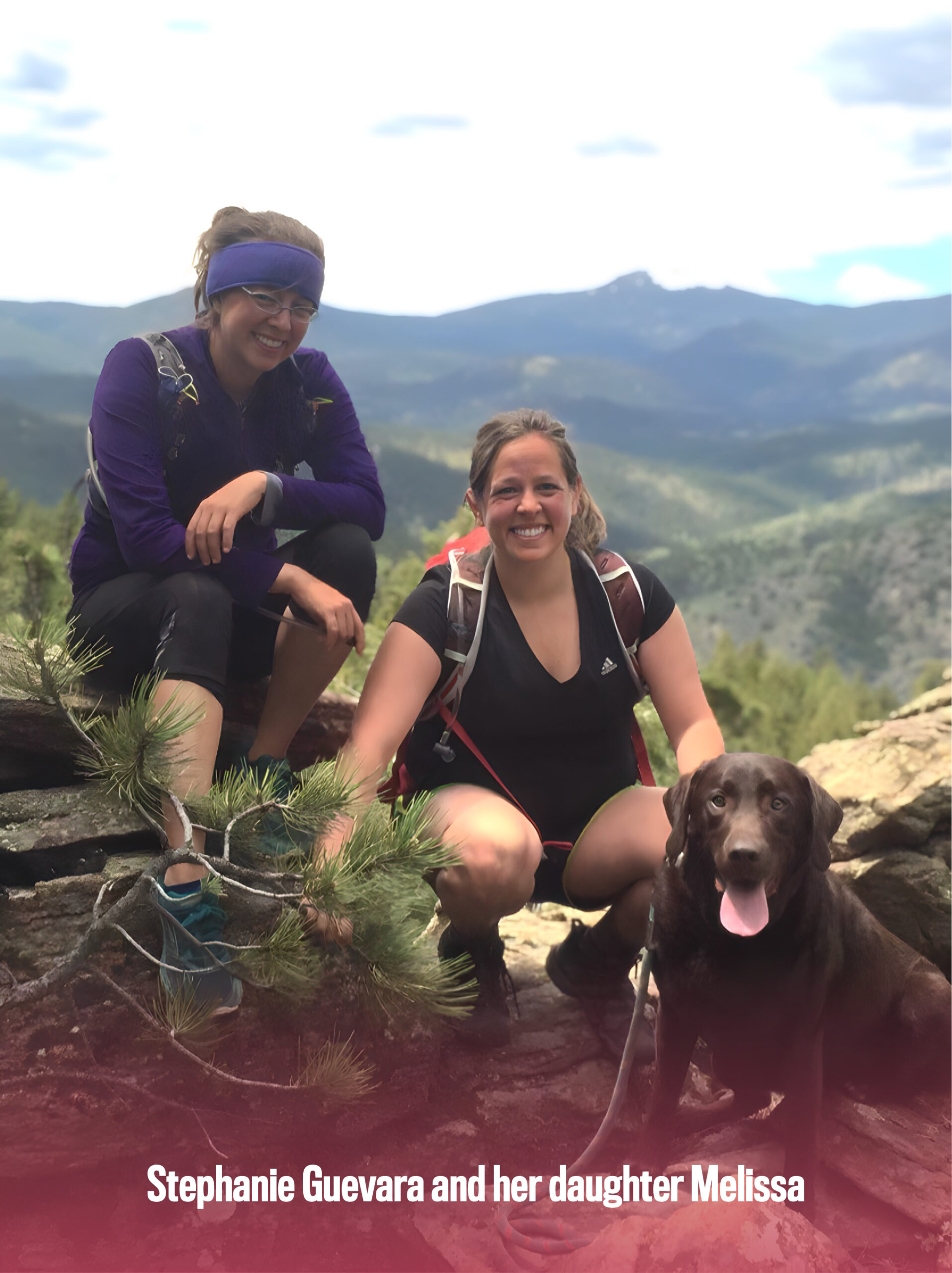
Missed or delayed diagnosis of heart disease can impact women of all ages. A mother shares her daughter’s story to inspire other women to know the signs and symptoms and advocate for themselves—before it’s too late.
By Stephanie Guevara
My daughter Melissa was the type of person who dropped everything for the people — and animals — she loved. Whether she was helping her twin sister, Emily, as she recovered from a stroke or saving stray dogs from the side of the highway, she always took care of everyone around her.
Tragically, Melissa passed away from a heart attack at age 35 in 2023. But her death did not have to happen. It’s now my mission to share her story with the hope of saving lives and preventing other mothers from experiencing what no parent should.
Melissa had a very active lifestyle. Growing up, she played various sports — from swim team and tennis to skiing and hiking in the Colorado mountains where we raised her — and that carried into adulthood. Her biggest passions were staying active, taking care of dogs and spending time with Emily. I think she may have liked animals more than people, which is hard to imagine as she always made friends wherever she went.
Once when we were vacationing at our cabin in the mountains, Melissa risked her life to save her dog, Dawson. The dog had darted into the choppy, dangerous rapids of the river by the cabin. Without a second thought, Melissa ran into the water after Dawson. My brother ended up saving them both, and although we were terrified at the time, we laugh about the story now because that’s just the kind of person Melissa was.
When Emily had a stroke in 2017 due to a rare, unknown blood disorder, Melissa stayed by her side and cared for her as she went through therapy and recovered from several brain surgeries. While the girls were different, they shared an unbreakable bond. Melissa was constantly dragging Emily with her all around the country to travel to new places.
Emily made the call I’ll never forget. On June 6, 2023, our phone rang at 4:30 a.m., and Emily told us that Melissa had collapsed and to meet her at the hospital. Once my husband and I arrived, my stomach dropped when I saw the look on the doctor’s face. I asked if Melissa was going to be okay, and the doctor said she didn’t know. We asked if we could see her to say goodbye.
When we entered the room, more than a dozen doctors surrounded Melissa doing everything they could to try to revive her heart — but there was no heartbeat. We learned later that she most likely died in the ambulance.
The autopsy report told us that Melissa suffered from an anterior ST-segment elevation myocardial infarction (STEMI) heart attack. It occurs when there’s a blockage preventing blood from flowing through the left anterior descending (LAD) artery. The report showed that her LAD was more than 80% blocked.
We were stunned. How could this have happened? My daughter was young, healthy and active. She didn’t smoke or drink.I needed to find out how doctors missed this.
I accessed Melissa’s medical records and discovered her cholesterol levels were out of normal range dating back to 2020. A few weeks prior at her last physical, her triglycerides levels shocked me. They should be below 150 — Melissa’s were 318.The only note I found from the doctor was to switch to a plant-based diet, when Melissa should have immediately been prescribed statins, a cholesterol-lowering drug, and gone through additional testing.
Later, Emily told us Melissa complained of heartburn the night of her heart attack and a few days leading up to it. A few weeks before, she experienced vertigo. We also noticed she sweated a lot more than the rest of the family — even in cold weather. While we didn’t think much of it at the time, these symptoms combined with her high cholesterol were warningsigns.
Melissa didn’t have to die. But I hope her story inspires other women to know their symptoms and advocate for their health. Many doctors dismiss women’s complaints as hormonal or blame them on eating “too many cookies.” I urge all women to get their numbers checked and demand that their doctors explain their results and provide medical intervention.
Too often, women take care of everyone else before themselves. I hope Melissa’s story encourages you to take your health seriously before it’s too late. And if you see a stray dog, pick them up off the street and think of her.